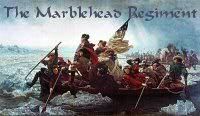200 Years
The morning of Oct 21 1805 was calm with light winds scarcely strong enough to move the two columns of Nelson's fleet at more than walking pace. Nelson led the left-hand column, Admiral Collingwood the right-hand. Their ships were severely punished in the approach, Victory's foresails today on display at Portsmouth show 100 shot holes. The two columns bore on inexorably however and once through the enemy line turned to cut off its retreat. The gunnery battle then began in earnest.
British gunnery was greatly superior to the enemy's and, as the British succeeded in surrounding several clusters of French ships, the execution done was frightful. Victory was joined by several ships around the French Redoubtable, commanded by the tiny captain Lucas, less than five feet tall.
Lucas however was a fire eater and had crowded his tops with musketeers. It was one of these men firing down on to Victory's quarterdeck who shot Nelson. The bullet lodged in his spine and though the admiral survived long enough to learn that the Combined Fleet was beaten, died before the end of the battle.
The calm of the morning was succeeded by a violent storm, which drove many of the surviving enemy ships ashore, with terrible loss of life - 8,500 dead and wounded out of 50,000 present.
Only 16 of the 28 enemy ships survived. None of the 23 British ships was lost. Victory of course survives to this day. And if Britain has such a thing as a national shrine she is it.
At Trafalgar under Nelson's command, she and her sisters assured that Britain would not be invaded and that Napoleon would have to look elsewhere for a victory.
He kept on trying until 1815 when, at Waterloo, he was defeated on his own element, on land.
- More: Facts, Attack Plan, Gallery, Map
 I Remember
I Remember
















































<< Home